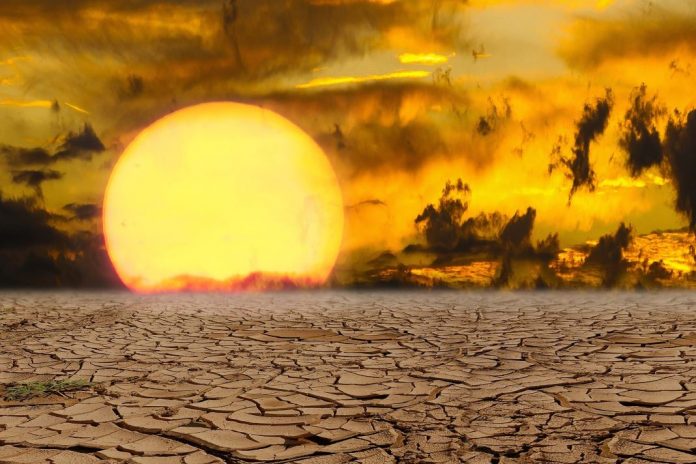As climate change continues to alter the planet we live on, things in most places are going to get a lot hotter. Some areas will see record droughts—or just become desert entirely. Surviving heat waves becomes another survival skill that the well-prepared individual would do well to pick up.
Heat waves are prolonged periods of significantly high temperatures, especially temperatures that are much higher than normal for that region. Heat waves can cause power outages, which can lead to food spoilage and death from hyperthermia as people lose the ability to stay cool.
Hyperthermia, or heat stroke, occurs when the body can no longer regulate its temperature. A person with heat stroke will stop sweating as their body temperature rises rapidly. If not treated correctly, heat stroke can lead to permanent disability or even death.
Diagnosing heat stroke quickly and correctly are important. Nausea, dizziness, and confusion are warning signs of hyperthermia, especially when accompanied by a headache or rapid pulse. Most tellingly, if a person has hot, dry skin that is flushed or unusually red in color, a body temperature over 103°F, or has lost consciousness, they are in full hyperthermia and must be treated immediately.
A similar, but less serious condition called heat exhaustion or heat fatigue occurs after constant exposure to high temperatures over the course of several days or longer, and is almost always accompanied by dehydration. Heat exhaustion may be the issue if a person is pale, experiences nausea, vomiting, loss of consciousness, headache, confusion, dizziness, muscle cramps, fatigue, weakness, and excessive sweating.
The best way to cope with a heatwave and avoid heat related illness is to prevent your core body temperature from climbing too high. Stay well hydrated and limit exertion to cooler times of day, be sure to take ample rest in a cool, shaded place, wear light clothing, and if it is an option, take a cool shower, bath, or dip in a pool or other body of water.
If you must work outside during the day, wear loose fitting clothing and pace yourself, taking frequent breaks for hydration and rest. It is better to try to rest during the hottest part of the day and do any necessary work in the coolest part of the day, in the morning or evening. Adequate water supply is critical in a heatwave situation, and the well-prepared individual will have taken pains to ensure plenty of water in storage in heatwave-prone areas.
Your Fellow Patriot
Steven Bryant







![My #1 Self Defence Tool Is Yours Free Today – [237 Left]..](https://patriotauthority.com/wp-content/uploads/2019/04/army_photo-1-100x70.png)
